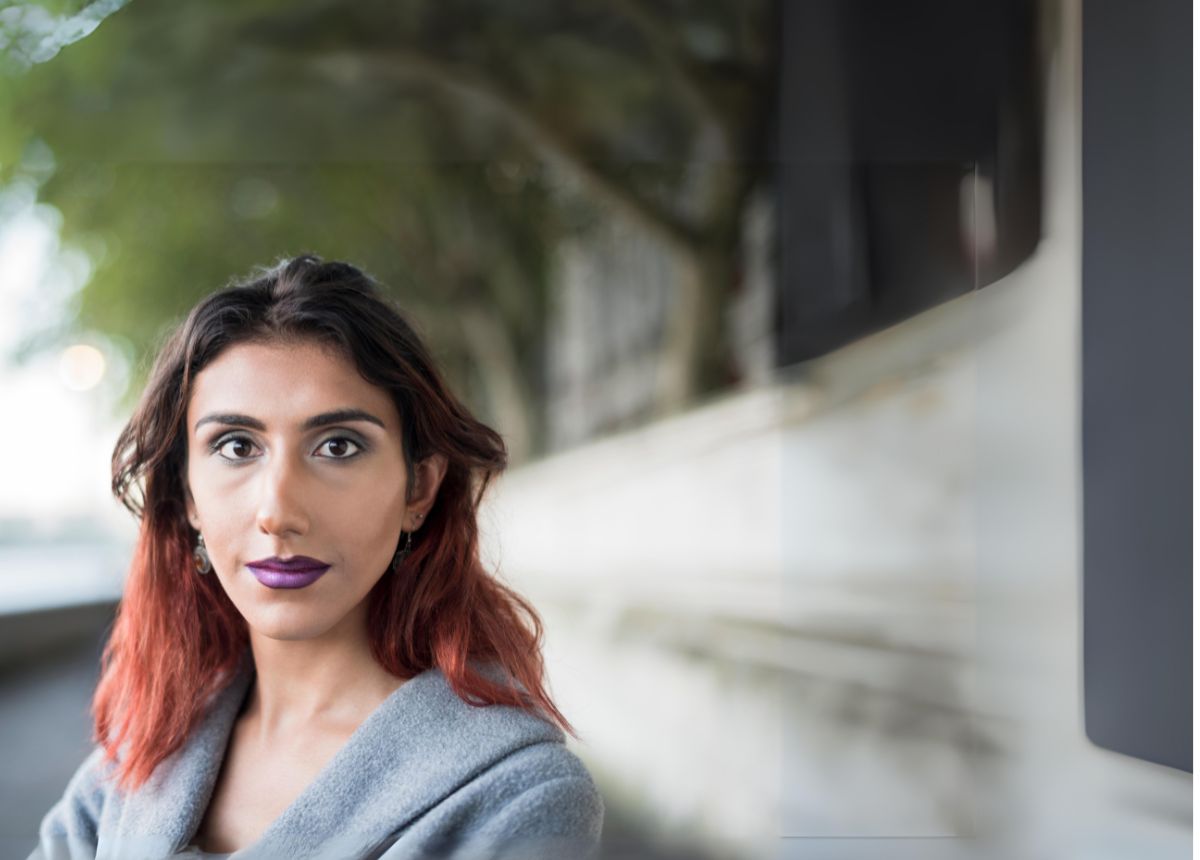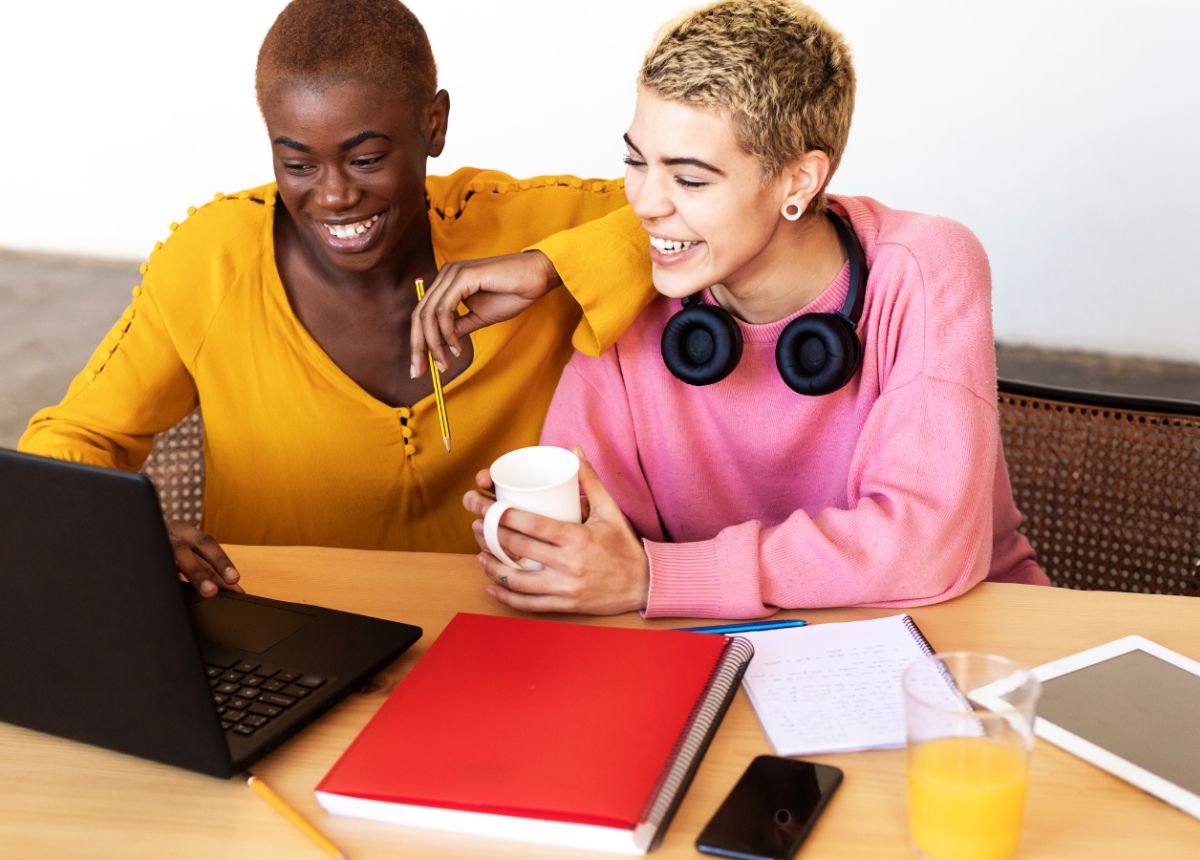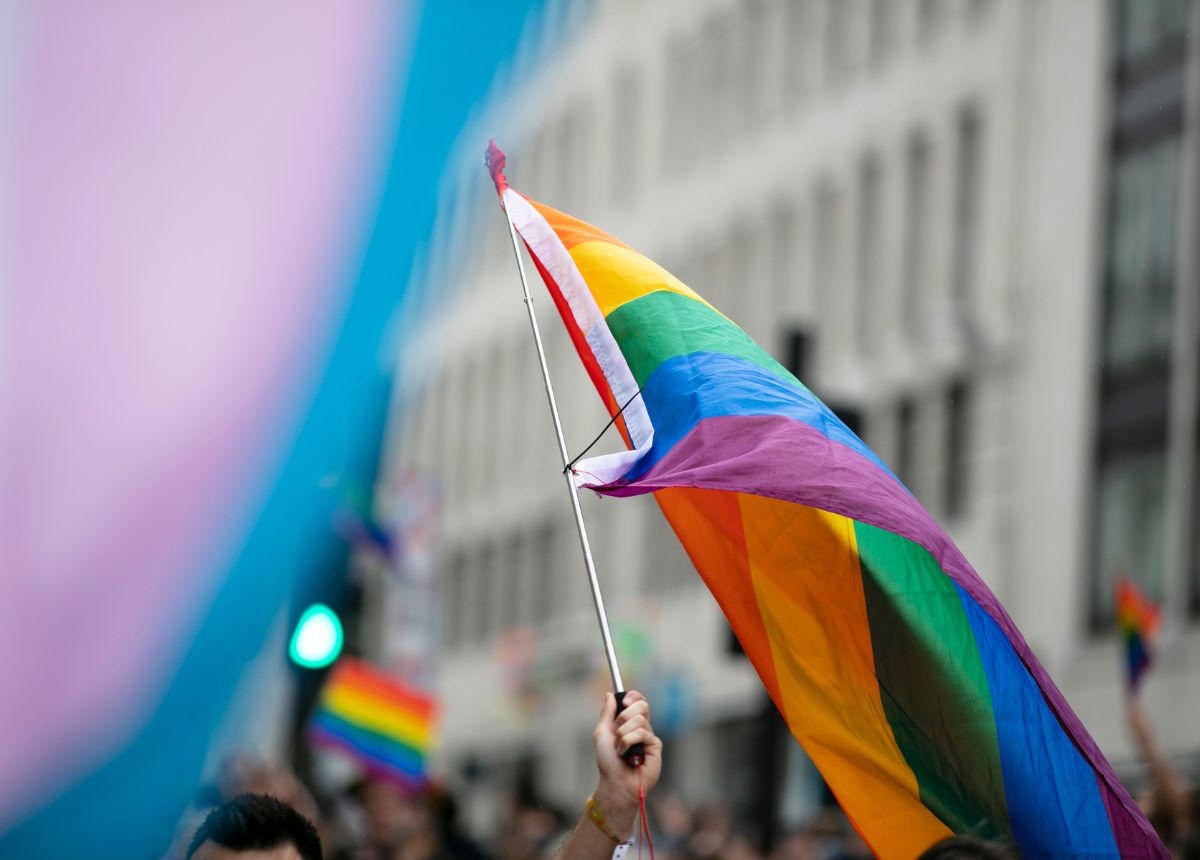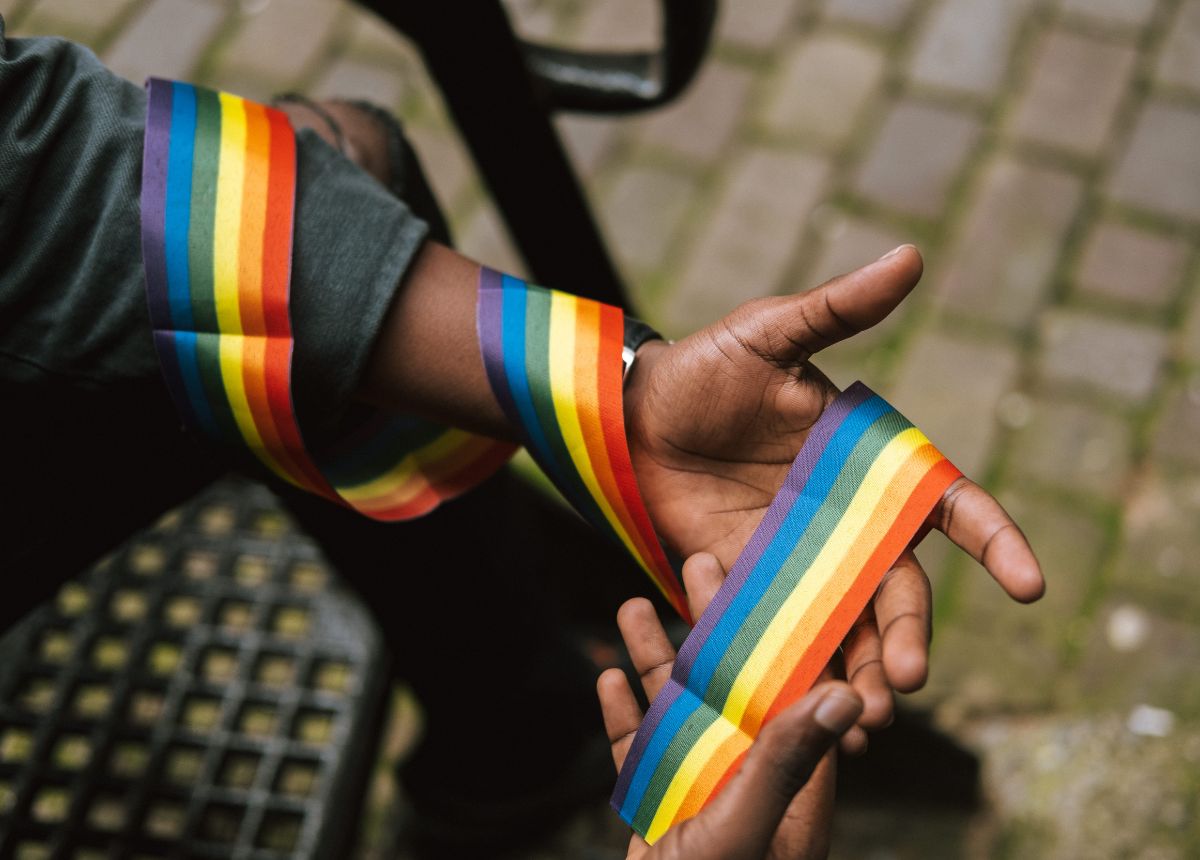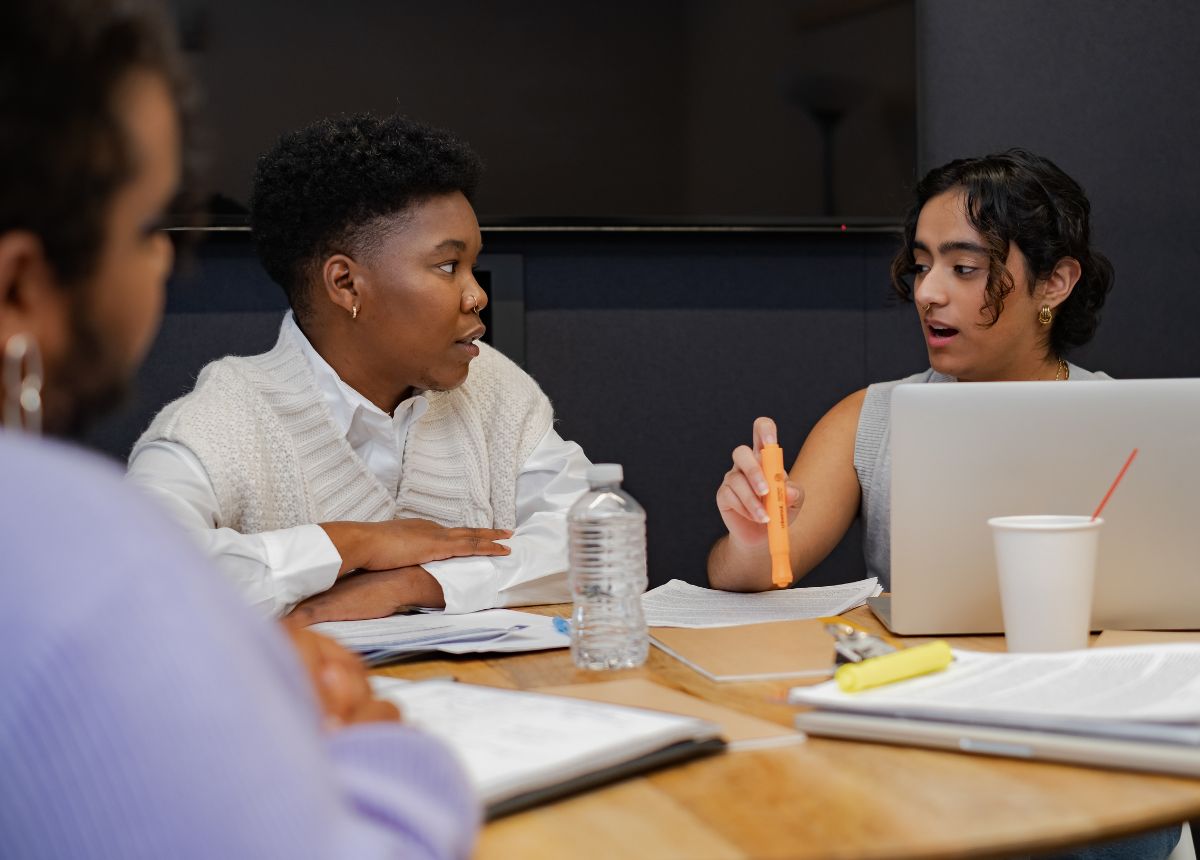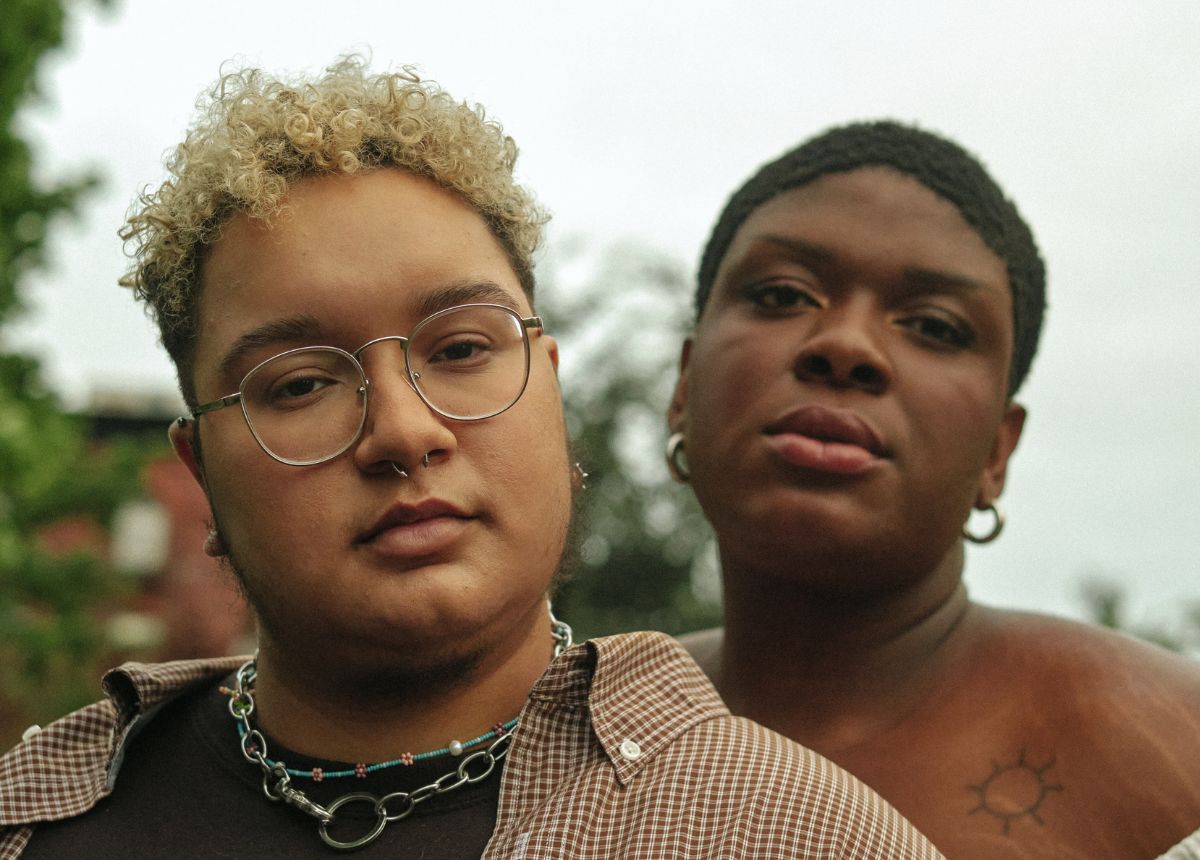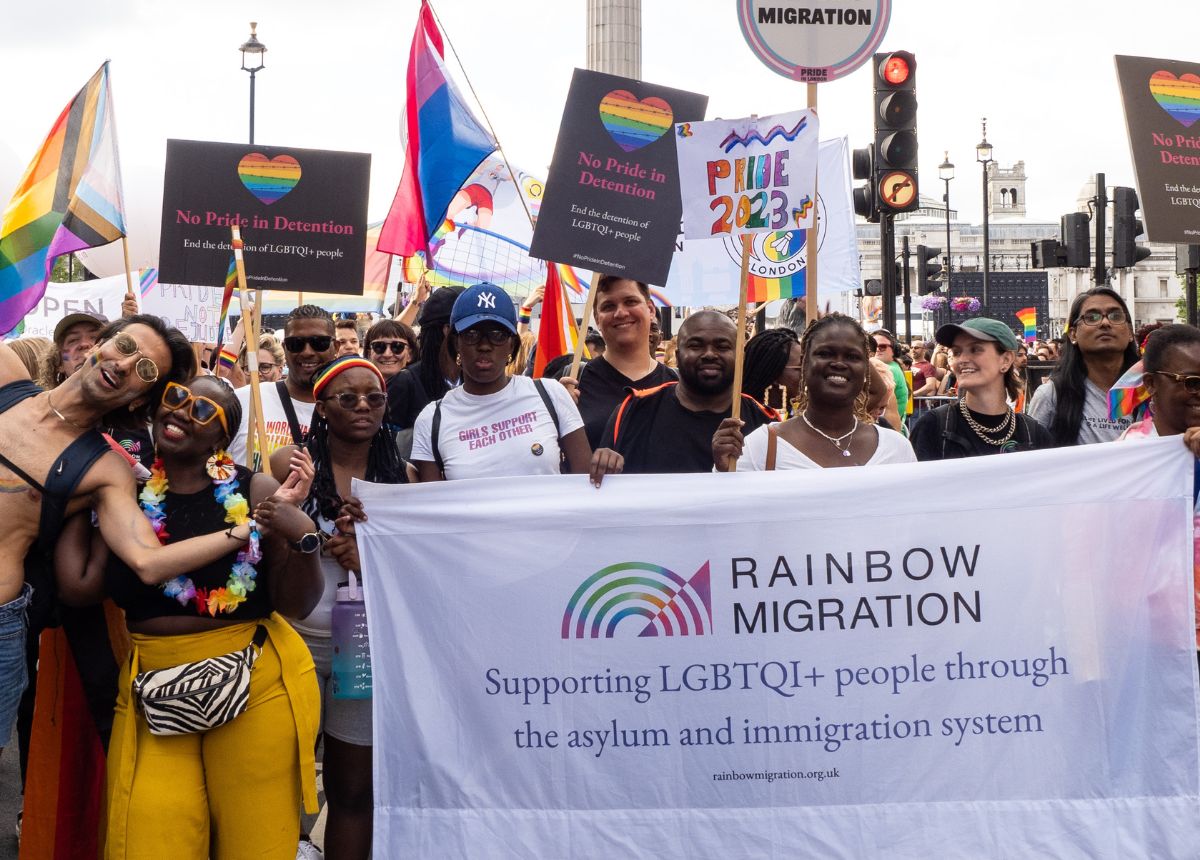We are devastated to witness the passage of the cruel Rwanda bill
We are devastated to witness the passage of the cruel Rwanda bill into law by this government. By pushing forward with this legislation, this government has signed off a policy to banish and abandon people who fled to the UK, seeking to find safety here.
Although the UK's highest court ruled that Rwanda is not safe, this government has remained determined to pass a cruel bill and fly people who have already been tortured and escaped death thousands of miles away to a place where they have no connections and where they will be in danger.
For two years since this government’s inhumane plan was first announced, we have repeatedly warned that Rwanda is a country where LGBTQI+ people are subjected to discrimination, violence and abuse.
The UK government’s own website states that LGBT people in Rwanda are abused, including by local authorities. The situation for LGBTQI+ people in Rwanda is so poor that people have sought asylum in the UK based on their sexual orientation.
There is widespread evidence of ill-treatment and abuse faced by LGBTQI+ people in Rwanda. It is a disgrace that this government is willing to send LGBTQI+ people, who have fled life-threatening situations in their home countries and sought safety and protection in the UK, to another country where they would be in further danger.
Leila Zadeh, Executive Director at Rainbow Migration, said: It is dystopian that this government has passed a law that ignores facts and declares contrary to evidence that Rwanda is a safe country. Most of us welcome people who have fled unimaginable horrors, but instead this government is intent on sending them to danger.”
Innocent, a gay man from Rwanda, who came to the UK 20 years ago, said: “Having experienced the discrimination faced by LGBTQI+ people – or those perceived to be sexual minorities in Rwanda – I am shocked that the UK would deport people from our community there”.
Rwandan LGBTQI+ activists have also warned: “We don’t understand how the UK government would send LGBTQI+ people here knowing that they will face discrimination. ... LGBTQI+ people face stigmatisation and abuse in Rwanda every day, and there are many cultural and religious factors which fuel hatred against LGBTQI+ people in Rwandan society.”
A gay man from Guatemala, who was recently granted refugee status, said: “It feels like they don’t consider you human enough to provide you with a home, to give you a place to live. It feels like you are this problem that nobody wants to deal with, so you get to be tossed around from country to country, which gives you such a hopelessness feeling.”
Rainbow Migration will continue working tirelessly to ensure that LGBTQI+ people seeking safety here are properly supported, able to settle and can challenge each and every attempt to send them to an unknown country, where they don’t have any connections or support.
We also call on this government to get in line with public sentiment, to ditch this heartless Rwanda plan and other cruel policies, and instead create a more humane and compassionate asylum system so that people can rebuild their lives in safety.
Believe it or not: Call for papers
Imagine being forced to ‘prove’ your sexual orientation or gender identity to strangers who might hold preconceived notions about who you are. For LGBTQI+ people seeking asylum, this is often the case. Despite calls for change, credibility assessments of LGBTQI+ people is often based on stereotypical assumptions and expectations of universal characteristics or life experiences among all LGBTQI+ people seeking asylum, such as ‘emotional journeys’, shame, and other negative feelings about themselves.
The Striking Sirens Coalition is a group of practitioners and academics in the field of SOGIESC (Sexual orientation, gender identity and expression, and sex characteristics). We, at Rainbow Migration, are working with the coalition to organise a conference to find solutions to the issues which are commonly experienced within the credibility assessment of sexual orientation and gender identity asylum claims and to renew momentum to update UNHCR guidance about it.
The coalition are now inviting proposals for papers and workshops on, but not limited to:
- Solutions to improve the credibility assessment of SOGIESC asylum claims without defaulting to models or stereotypes.
- The impact of current credibility assessments on LGBTQI+ people who have sought asylum.
You can send your proposal of max. 250 words for a paper or workshop to strikingsirens@coc.nl before 10 May 2024.
Download full call for proposals with more information
RAF Wethersfield: Unsafe for LGBTQI+ people
At Rainbow Migration we are increasingly concerned about the safety of LGBTQI+ people in inappropriate and unsafe shared asylum accommodation.
In recent months, we have documented many concerns about room-sharing for LGBTQI+ people seeking asylum and we have seen a sharp increase in the number of people accessing our services because they have experienced homophobic, biphobic or transphobic harassment and verbal, physical and sexual abuse.
RAF Wethersfield, a former military site located Wethersfield is one of the unsafe facilities that this government is using to place people seeking asylum and together with other organisations, like Helen Bamber Foundation and Care 4 Calais, we have recently submitted a comprehensive report to Parliament to shed light on the dangers of using this site. We have highlighted the specific dangers of housing LGBTQI+ people seeking safety here in them.
Outlined below are the critical issues we have raised, but for more in-depth information about the issues and our submission, please download our Evidence to the Secondary Legislation Scrutiny Committee.
- Housing people in prison-like conditions is cruel and risks further traumatising LGBTQI+ people who have had to flee unimaginable dangers and life-threatening situations.
- Many LGBTQI+ people seeking safety here have been rejected by their families back home and may have limited support networks in the UK. Therefore, the geographic isolation is particularly hard for LGBTQI+ people, who need to keep in touch with or seek support from LGBTQI+ community groups or support networks.
- The dangers of room sharing for LGBTQI+ people: In shared accommodation, LGBTQI+ people are often subject to abuse and mistreatment, which can further traumatise people who are seeking safety and protection. We have found homophobic, biphobic and transphobic harassment to be systemic in shared asylum accommodation.
- We are also concerned that neither the Home Office nor accommodation providers are adequately recognising that LGBTQI+ people are vulnerable or at risk of harm in shared rooms, nor providing suitable accommodation as soon as they become aware of the fact.
This government should ensure LGBTQI+ people are accommodated suitably and safeguarded from harm.
Read the full Evidence to the Secondary Legislation Scrutiny Committee
The Scrutiny Committee has now published its response to our joint submission. It has called on the Government to protect the health, safety and wellbeing of staff and residents at large sites like RAF Wethersfield, and especially those residents who are vulnerable. Their response also specifically draws upon our submission in criticising the unsuitability of RAF Wethersfield for the accommodation of asylum seekers due to its ‘isolated location, prison like surroundings and large number of residents’.
In their reply to that report, the Home Office has said that they screen all people seeking asylum to ‘protect vulnerable individuals and ensure they are placed in suitable accommodation’ and that vulnerable individuals, or those with ‘any specific needs’ would not be placed at RAF sites. We will continue to advocate for no LGBTQI+ people to be held in unsafe and unsuitable sites including RAF Wethersfield.
Get help from us if you get a call
For two years since this government’s cruel Rwanda plan was first announced, we have repeatedly warned that it is a country where LGBTQI+ people are subjected to discrimination, violence, and abuse.
We have now received reports that the Home Office are calling people to offer ‘voluntary departure’ to Rwanda. If you have received one of those calls or if you receive one in the future, please be aware that you DO NOT have to say yes.
If you are LGBTQI+ and receive a call, please contact us immediately as well by filling in this form with us much detail as possible. We will respond as soon as possible.
If you get a call we recommend to:
- NOT respond until you have legal advice
- Ask the Home Office to send the offer to you in writing
- Find legal representation
If you are LGBTQI+ and receive a call, please contact us immediately as well by filling in this form with us much detail as possible. We will respond as soon as possible.
Useful links to find legal advice and representation:
- If you need help finding a lawyer you can check out our list
- You can also find a lawyer o the Law Society website
- The Adviser Finder allows you to search for an OISC regulated organisation based on location
Could you be our next Legal Officer?
***THIS RECRUITMENT HAS NOW CLOSED***
Are you a dedicated legal professional looking to make a real difference in LGBTQI+ asylum? Join our team!
We are looking for a qualified solicitor or barrister with valid practising certificate, or already accredited to Level 3 OISC, with two years’ experience in providing advice and representation in asylum including working in legal aid.
You will be responsible for the day-to-day delivery of the legal advice service. Under the guidance of our Legal Service Manager, you will also build capacity amongst legal representatives by designing and delivering training, giving second tier advice and developing and coordinating a network of practitioners working in this area. You will use the knowledge you gain in this role to help deliver our policy work, such as inputting into policy papers and meeting with partner organisations when required.
We will also consider applications from people who do not want to do the policy elements of the job, but to instead focus on first and second tier advice. Please mention in your covering letter if you are applying for this option.
This is a unique opportunity to build on your experience as a lawyer or caseworker to improve representation across the sector and create change in government policy and practice. You will be supported to develop as a specialist lawyer and in your policy skills.
Responsibilities will include:
- Deliver one-off advice to adult LGBTQI+ people seeking asylum and work with colleagues to refer them to quality legal aid and pro bono lawyers
- Provide casework assistance e.g. helping to prepare witness statements, making referrals to other specialist organisations and taking other urgent steps (whilst not representing service users or maintaining a caseload)
- Provide occasional advice (within competence) on other issues affecting asylum and partnership service users such as asylum support, legal aid, trafficking, family reunion or community care
- Deliver second tier advice to the legal representatives of LGBTQI+ people seeking asylum and other charities and professionals
- Work with the Legal Manager to design and deliver training to lawyers, NGOs and other professionals
- Write blogs and articles on asylum and immigration policy and legislation as they apply to LGBTQI+ people
- Contribute to policy and briefing papers
The Legal Officer will not be providing direct legal representation of service users. However, the role includes substantive advice and casework within the scope of legal support and referrals for our service users, as well as merits testing and second tier advice.
Our vision is that LGBTQI+ people can settle in the UK and lead fulfilling lives. Our values are:
- Safety: We believe everyone should be safe from persecution and safe to be themselves. We strive to create a safe workplace culture, and we place importance on the wellbeing of everyone involved with Rainbow Migration.
- Integrity: We are thorough and honest in everything we do, and we take responsibility for our actions. We want to be accountable to our communities and those who support us.
- Belonging: We welcome and include all LGBTQI+ people, and we celebrate and value their range of experience in terms of gender, religion, race, age, disability status and class. We try to remove obstacles to participation, champion equality and promote a sense of family or home through our services.
- Respect: We believe that every person is equal and deserves the same level of courtesy, care, and attention. We respect the rights, wishes and feelings of our service users, and campaign for their rights to be respected as they go through the asylum and immigration system.
At Rainbow Migration, we don’t just accept difference – we celebrate it, we support it, and we thrive on it. We’re proud to be an equal opportunity employer and we value diversity. We do not discriminate on the basis of race, religion, colour, national origin, gender, gender identity, sexual orientation, age, marital status, or disability status. We consider all qualified applicants, consistent with any legal requirements.
We welcome applications from candidates with lived experience of going through the UK asylum or immigration system or who have been subject to immigration control. We offer a guaranteed interview scheme for anyone considered as disabled under the Equality Act 2010 if they meet the necessary criteria in the person specification.
Owing to the nature of the work, the successful applicant will be required at the point of conditional job offer to disclose all spent and unspent criminal records and subsequently to undergo an enhanced DBS check.
Contract Type: Permanent.
Hours: Full-time (35 hours per week). Working part-time or job-sharing will be considered. Occasional work in the evenings and at weekends may be required but with plenty of notice. Rainbow Migration encourages staff to maintain a good work life balance and has a TOIL system in place.
Salary: Starting at £40,175 with effect from 1 April 2024, with potential annual step increases up to £44,868 (pro-rata for part-time employees), plus statutory employer’s pension contribution. In addition to an annual step increase, the trustees consider giving a separate inflationary increase every April.
Location: Rainbow Migration’s offices are based in Borough, central London. This role will have an office-based contract but the postholder can choose to work from home for part of the week in agreement with their line manager and Executive Director. You must be available to work from our offices in London when necessary. The successful candidate would also be welcome to work from the office full-time if that is their preference. There might also be occasional travel outside London with plenty of notice. At the time of posting this advert, none of our staff are going into the office every day. Please contact us if you have any questions.
Annual Leave: 25 days per year rising after 24 months by 1 day after each year of service to maximum of 28 days per year (pro rata if working part-time).
Wellbeing: We offer up to two days of wellbeing leave to be taken at short notice in each calendar year. One-to-one clinical supervision is also available for this role.
How to apply:
Closing date: Applications will be reviewed on a rolling basis, but the first consideration of received applications will take place on 18 March 2024.
Interview date: Interviews will be scheduled on an ongoing basis in response to applications received.
Please read the job description and person specification. If you have any questions about the role or would like to find out more before applying, then you can contact the line manager via recruitment@rainbowmigration.org.uk.
Please send:
- Your CV
- A written statement (max 1,000 words). Instead of a written statement you may submit your statement by video or audio recording (max 8 minutes)
- Optional: a completed monitoring form
to recruitment@rainbowmigration.org.uk.
In your statement, please:
- Give examples of how you meet the person specification. In addition to what is on your CV, we want to hear about any relevant skills and experience that demonstrate how you meet the necessary criteria for the role, and if you meet any of the advantageous criteria. Skills and experience could be from training, volunteering, interests or life experience
- Confirm if you wish to be considered under the guaranteed interview scheme for anyone considered as disabled under the Equality Act 2010 (physical or mental impairment that has a ‘substantial’ and ‘long-term’ effect on your ability to do normal daily activities)
- State how many hours a week you wish to work and if you have a preferred pattern, or if you are applying as part of a job-share
- If you do not want to do the policy elements of the job and instead focus on first and second tier advice, please mention this.
By submitting an application, you:
1. Confirm that you have the right to work in the UK and will produce the necessary documentation if you are offered this post.
2. Declare that to the best of your knowledge and belief, the information provided with your application is true and correct and that you understand that any false information or statement given will justify the dismissal from Rainbow Migration if appointed.
3. Accept that, if successful, you will be required to disclose all spent and unspent criminal records at the point of conditional job and subsequently to undergo an enhanced DBS (Disclosure and Barring Service) check.
We are proud to be a member of the Experts by Experience Employment Network, which aims to create a charitable sector that is led by people with lived experience of the asylum and immigration system. As part of this network, we challenge the one-size-fits-all approach in our employment practices, and respect personal circumstances and needs of people with lived experience. Please feel free to use information and resources which may help in preparing your job application
Privacy notice
If you apply for this role, the information you provide will be processed according to Rainbow Migration's privacy policy. Rainbow Migration will not share your information with any third parties unless part of the recruitment process or are legally required to do so. By applying, you are permitting Rainbow Migration to access and use the information for recruitment purposes. Rainbow Migration will store your data for 12 months after the conclusion of the recruitment campaign. Monitoring information is kept separately and is pseudonymised to avoid identification of applicants. It is amalgamated for statistical purposes and the original data is then deleted after six months.
The colonial past that shapes the present asylum process for LGBTQI+ people
Imagine escaping from the place you grew up in, where you have your community, your friends, your life, because you are LGBTQI+ or someone finds out that you are, and suddenly that place is no longer safe for you.
Many LGBTQI+ people across the world find themselves in that situation, and some come to the UK to rebuild their lives in safety here.

However, the UK asylum system can be very challenging to navigate, particularly for LGBTQI+ people.
LGBTQI+ people seeking asylum are required to “prove” their sexual orientation or gender identity and provide evidence of it, which is a very difficult thing to do.
First of all, when you’re fleeing for your life, the last thing you think about is collecting evidence of your sexual orientation or gender identity – like a letter from an ex.
And then once they’re here, not all LGBTQI+ people want to go to LGBTQI+ clubs, groups, events or be on dating apps, which could provide some sort of evidence; everyone lives their queerness in different ways.
Many people don’t even know that they have the right to claim asylum based on their sexual orientation or gender identity when they get here, so wouldn’t think of collecting evidence.
Once they claim asylum, many LGBTQI+ people only have their own account of their sexual orientation or gender identity to provide as evidence. And this account doesn’t always meet the Western-centric expectations of an “emotional journey” or that sexual orientation is a fixed identity. In fact, many LGBTQI+ people have been refused asylum in the UK because of these expectations by the Home Office.

Research shows that this expected narrative of self-realisation is particularly difficult to meet for people from different cultural backgrounds. As mentioned in our report Still Falling Short, “Where a person is not imbued in the Western context of self-focus (as opposed to focus on family or communal duty as core founding features of identity), expectations of emotional journeys will often be culturally inappropriate”.
To make things worse, the Nationality and Borders Act passed by this government in 2022 introduced an even higher standard of proof, which means that LGBTQI+ people now have to provide even more evidence to prove their sexual orientation or gender identity. And that means that more LGBTQI+ people could be returned to countries where their lives are at risk.
Some people have argued that the imposition of these narrowly predefined categories and expectations when it comes to people seeking asylum on the basis of their sexual orientation or gender identity closely resemble those rigid categories imposed during the British colonial era and could therefore be seen as a legacy of colonialism.
In that sense, Alex Powell argues that Western countries like the UK are recreating colonial dynamics or enforcing conformity to “westernised” social scripts, and that “certain pro-LGBT+ policies do not take account of intersectional or culturally specific manifestation of sexual difference”.
During the 1800s, the British empire imposed strict laws that criminalised same-sex relations or declared trans people to be “unnatural” on colonised countries in Africa and Asia, often dismantling decades or centuries of complex local cultural attitudes towards sexuality and gender.
As the UN’s Independent Expert on protection against violence and discrimination based on sexual orientation and gender identity (IE SOGI) report on colonialism and sexual orientation and gender identity states, “The colonising nations established a cultural, political and legal system based on the reproduction-oriented cisheteronormative family, with no room for any gender or sexuality outside of these norms. Homophobia, biphobia and transphobia were ideas introduced by missionaries and colonial administrators and later copied by post-colonial leaders. In fact, sexual diversity was – for the first time in these territories – criminalised by the imposition of discriminatory laws during colonial rule. These legislations were maintained once colonial rule ended and many of them persist to date.”
Just recently, Kenyan transgender activist and feminist Arya Jeipea Karijo wrote about those queer pasts that existed in countries where many LGBTQI+ people flee from today. She stressed how “in African pasts what is now known as queer was crucial and in some cases “life saving” for our ancestors”. In present-day Uganda, trans people were referred to as Mudoko Dauku. In Ethiopia, the word wändarwäräd (loosely translated to male female) was a word for acceptance and inclusion. And in Kenya and Tanzania, some women who married other women were known as mokamööna.

The experiences of LGBTQI+ people seeking safety in the UK today are a stark reminder of the need for a more inclusive and culturally sensitive approach to asylum claims based on sexual orientation or gender identity. It is essential to recognise and respect the diverse ways in which individuals live or express their queerness and to ensure that the asylum system does not recreate colonial structures, perpetuate discrimination or put lives at risk.
As we reflect on the historical and current challenges faced by LGBTQI+ people, it is clear that there is an urgent need to create a kinder and more compassionate asylum system. It starts by lowering the standard of proof so that the government is not asking for unreasonably high levels of evidence for something that is already inherently impossible to prove. And it continues by recognising this country’s colonial past and our responsibility to offer safety to those fleeing from the repercussions of our past actions. The disbanding of the Windrush team is a sign that this government is turning a blind eye to the impact of its colonial legacy and refusing to learn lessons.
Queer pasts and global futures
By Arya Jeipea Karijo for LGBT History Month 2024
The challenge in looking at queer pasts in Africa is that what western framing calls queer, what the western framing called immoral, what the western framing called uncivilised; was what all colonised people called their culture, called their way of life, called their way of being. Queerness as we know it today was part of spirituality, it was part of continuity of families, it was part of celebration of milestones in life such as childbirth.
Therefore to ask indigenous peoples of whatever part of the world if their culture was queer is partly a fallacy of presumption because it assumes that these people agree with a Western framing that created boxes. This framing labelled some boxes normal, heterosexual, good and labelled other boxes abnormal, homosexual, deviant and bad. The laws based on this framing of course went on to criminalise anything that didn’t seem to fit the boxes.
Orlando Patterson spoke of “Natal Alienation” in relation to slavery where slaves were genealogical isolates from their ancestry and so only had their masters point of reference to the world. African or other indigenous queer people all over the world have to find pieces of heritage and pieces of belonging through this lens. The only way to be connected with these queer African pasts is seeking a relationality and a seeing of self in this past. Seeking an equivalence of modern queerness to indigenous queer culture would not work. Queer Africans are African or indigenous and therefore like all other African people have a claim to their ancestry and belonging and their search for cultural pasts that they identify with is valid.
Queer pasts
A difference in words used in the past with how they are perceived today plays out all over Africa. In Ethiopia “wobo” was used to mean crooked for the Maale people or God’s mistakes for the Coptic Amharas. These wändarwäräd (loosely translated to male female) were part of the community and unlike modern Western anti-rights christian groups “God’s mistakes” weren’t subjected to earthly persecution by Christians, but it was a word for acceptance and inclusion. The Ashtime (ritually installed wändarwäräd) served in the palace which gave them a place in society protected by Kings and not pushed to the fringes of society as is the case in modern day Ethiopia. There were also “mannish women” wändawände who were subject of many myths but not much was documented about them by white male ethnographers.
All over Kenya and Africa there are people like me, people using modern words such as transgender to identify with their erased pasts. Finding something in the now in order to belong in the present and to create a future. In the Lango peoples in current Uganda people like me were referred to as Mudoko Dauku. With the Hausa of Nigeria we were referred to as the Yan Daudu and we occupied a space in gender that was not man or woman. In Angola and Namibia, like the Mugwe of the Meru in Kenya, their diviners Zvibanda were possessed with powerful feminine spirits.
The reaction of colonisers to queer identities is still reflected by people today, 400 years later. Whatever we experience on Twitter or Meta apps was experienced by our ancestors. Father Antonio Cavazzi on meeting the Ganga-Ya-Chibanda in Congo described the diviner of this tribe as a “a bare faced, insolent, obscene, villainous, disreputable scoundrel” who “committed the foulest crimes” with impunity. Cavazzi couldn’t understand why this shaman was dressed as a “grandmother”, he couldn’t understand why he freely walked and lived in women’s secluded chambers and he assumed it was to engage in his “brutal passions”. The Ganga, like many effeminate men with a similar title in Africa, took men for husbands, but the Priest could not get this and assumed cis heterosexuality.
In my argument with a British woman on Twitter I mentioned female sons and male daughters. She quickly responded saying she had nothing against “DSD people”. I corrected her ignorance and also called her out for referring to intersex people as “DSD”. Female sons and male daughters was a term from the Igbo people of Nigeria. It had nothing to do with sex. It had everything to do with gender roles. Families that needed a son or a daughter could choose any child regardless of whether they were male or female to become a son or a daughter. This was in West Africa, but it also resonated with a practice among the Agikuyu of East Africa where a young person, if they were struggling with fitting into whatever groups, could walk around the Mugumo tree several times and when they came back the community would place them whatever gender roles they fitted in. This ambivalence and rightful non causal relationship between sex and gender was common. In her book “The Invention of Women” Dr. Oyeronke Oyewumi talks about Obinrin and Okunrin terms that were descriptive of anatomy in regards to reproduction. However this recognition, according to Oyeronke, did not refer to gender categories connoting social privileges nor did they imply sexual dimorphism. In the Yoruba culture anyone could take up whatever roles in society including warriorhood, elderhood and leadership. Age, skill and experience is what mattered in taking up a role. The Igbo account, the Kikuyu account and Dr. Oyewumi’s account of the Yoruba complement the story of Queen Nzinga of the Ndongo who for four decades defended her people against the Portuguese invaders. Queen Nzinga was the Ngola (King) of her people. She ruled dressed as a man , surrounded by a harem of young men dressed as women. The Mbundu recognised gender as situational and symbolic. Queen Nzinga’s rule evokes memories of Hatshepsut, Queen regent in 1479 BC to 1458 BC. Hatshepsut was Pharaoh, wore a golden beard and was referred to in genderless terms. Egyptians believed Pharaohs were divinity.
Family continuity did not also happen in the way that it is seen in modern times that is fixated around heterosexual sex. In communities such as the Kamba the belief was that if you did not have a son your ancestors were lost in limbo. So the Iweto (two women) would marry in order to save their ancestors and continue their lineage. With the Kuria who are both in Kenya and Tanzania, women who married other women were known as mokamööna. The Agikuyu women who married other women firmly refused to be seen as men or female husbands, they were women. Unlike modern Africa where continuity is only believed to happen through heterosexuality, in African pasts what is now known as queer was crucial and in some cases “life saving” for our ancestors.
Global futures
In queer theory, one is encouraged to look at the world through a different lens. Many queer theorists try to queer their fields both in terms of practitioners and in terms of practice. Queer theory is not only about challenging social inequalities but also imagining futures through the lens of people who have to fight to be in the present.
For African queer people and queer people in Africa the talk about futures might be met with pessimism. We are barely surviving the present. 26 countries still have British colonial penal codes that make queer existence criminal. British criminalisation of queerness was empire wide not just limited to Africa. The people of Pakistan and India had Khawaja Sira and Hijra respectively, who according to Jessica Hinchy were criminalised in the Criminal Tribes act of 1871 to keep the social hegemony of the British man at the apex of society followed by Sikh’s and Pathans and with the effeminate Bengali stuck at the bottom. In this social order women were only relevant as their husbands’ wives while the Khawaja Sira and Hijra went from being palace attendants to begging for a living.
While many of the British colonial laws have been repealed and the remaining ones not actively enforced, only being used occasionally for extortion by police, there is a new wave of legislation this time by African leaders who claim to be protecting both African culture and the family. In African countries the new legislation is supported by far-right groups such as CitizenGo from Spain and Family Watch International from the USA. All we see is a second round of erasure of our existence, 100 years after the first round.
How could I speak of a future to any queer person in this context? Not only of a future, but of a queer future. How can millions of us raise our hearts and minds from the trenches of trying to stay alive, from the activism of trying to prevent our erasure, and imagine for a minute the future?
I want to imagine this future based on our pasts. The Ameru who are my people of origin created families with Maa and Galla peoples when they emigrated to Mount Kenya from the Indian Ocean. I imagine that future families will be made of choice with bonds of blood like the Wagalla and Ameru, in this future “blood of the covenant is thicker than the water of the womb.” In this queer future we will have a home in each other’s home with our origins of where we were born becoming only useful to identify ourselves, in similar fashion to like the Wagalla waving white tufts of grass when coming to the Meru, but never as a restriction to where we can make a home in the world. A home in Africa, a home in Eurasia, a home in the Americas. In this future we would not need to be stuck in paperwork limbo or jump through decades long red tape while stuck in refugee camps. In this queer future no one obsesses about whether we are lesbian or transgender, we are just human beings with roles in societies, with families that we love and with people who we share our lives with. Maybe in this future, who we took as a family and our communal existence would be seen as the key to survival and thriving, as opposed to being seen as labour, as opposed to family members being seen as populace to extract labour from to build an African or whichever other imagined national or racial renaissance.
In such futures technology, religion, governance, commerce would serve humanity and the planet instead of extracting from both. Tech would allow you to move around the world with a global identity. Religions would honour our humanity and our spirituality instead of erasing the former and fighting the latter. Commerce would help us exchange our skills and craft instead of herding us into class tiers where we were stuck for life, engaged in an unending lifelong attempt to break out. Governance would facilitate human unity instead of fighting for narrow territories of resource control.
Even to a person who is not an African or a Middle Eastern queer stuck in a state of statelessness, my dreams of the future might seem ridiculous. Even if I back up my dreams with thousands of years of indigenous cultures as evidence of possibility they still seem far fetched. In this world in which according to Yuval Harari we have overcome disease, effects of war and famine or at least have the means to overcome all of these, my dream would still rank as far-fetched.
The challenges of the present may bring us to the point where we are tempted to deny the existence of both the past and deny the possibilities of the future. Our presents can be the continual link for our imagined futures as described by Neema Githere in their theory of “Afropresentism”. The question we are faced with becomes, “what resource do we need to build this future?” and the answer is <<Hope>>. Hope built on the evidence of making this future a present reality for one individual at a time. We need hope built on queerness. We need words that bring this hope to life, words like José Esteban Muñoz, in his work Cruising Utopia that remind us of the powerful insights to life from our queer existence.
The future is queerness’s domain. Queerness is a structuring and educated mode of desiring that allows us to see and feel beyond the quagmire of the present. The here and now is a prison house.

Arya Jeipea Karijo is a trans woman in Kenya working at the intersection of human rights, LGBTIQ rights, feminism and gender equality. She is a user experience researcher and designer, building for simplicity in human lives – applications, experiences and interventions for people’s resilience and the planet’s sustainability. She was a Data Journalism Fellow for open Democracy’s Tracking the Backlash team in 2020.
Arya is currently working on Narrative Change for her communities in Eastern Africa
Did you know that some of the current struggles of LGBTQI+ people seeking safety here are shaped by our colonial past as well? Learn more
LGBT+ History Month: Celebrating LGBTQI+ solidarity in our No Pride In Detention campaign
In our first blog for LGBT+ History Month we’re celebrating the queer solidarity shown by partners in our No Pride In Detention campaign.
No Pride In Detention calls for an end to the detention of LGBTQI+ people, who experience bullying, harassment and abuse while held in immigration detention. It’s an experience that has devastating consequences, but is so often overlooked or ignored – in part because detention only affects people subject to immigration control in the UK.
That’s why it’s so inspiring to see LGBTQI+ groups and organisations across the country join forces to say that we won’t stand for anyone in our community being locked up and subjected to bullying and abuse.
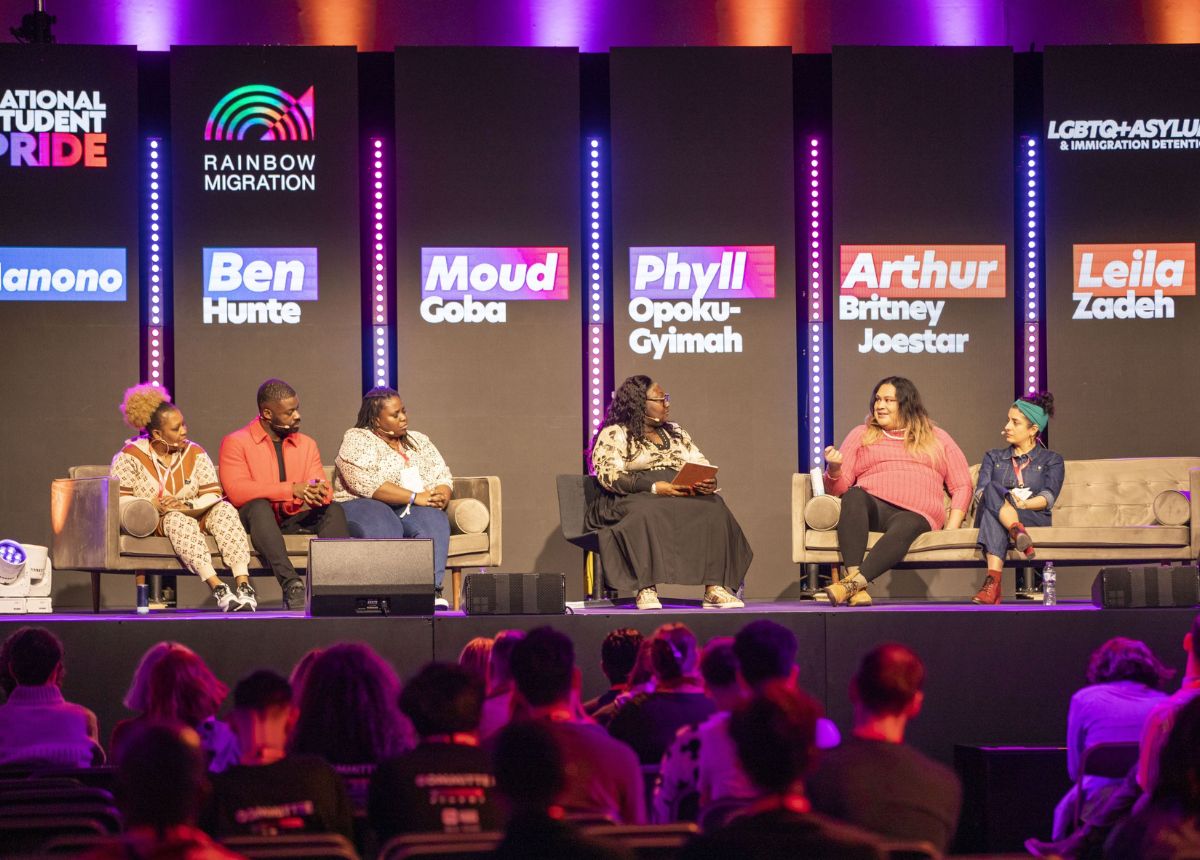
The organisations that make up the coalition are a diverse group – from big charities to radio stations and poetry groups. What brings us together is a sense of solidarity with LGBTQI+ refugee communities.
This LGBT+ History Month we want to showcase some of the amazing contributions these groups have made to the campaign.
Starting with Sahir House, who hosted us in Liverpool for two days while we worked with them and Many Hands One Heart on a film exploring the experiences of lesbian women in immigration detention.
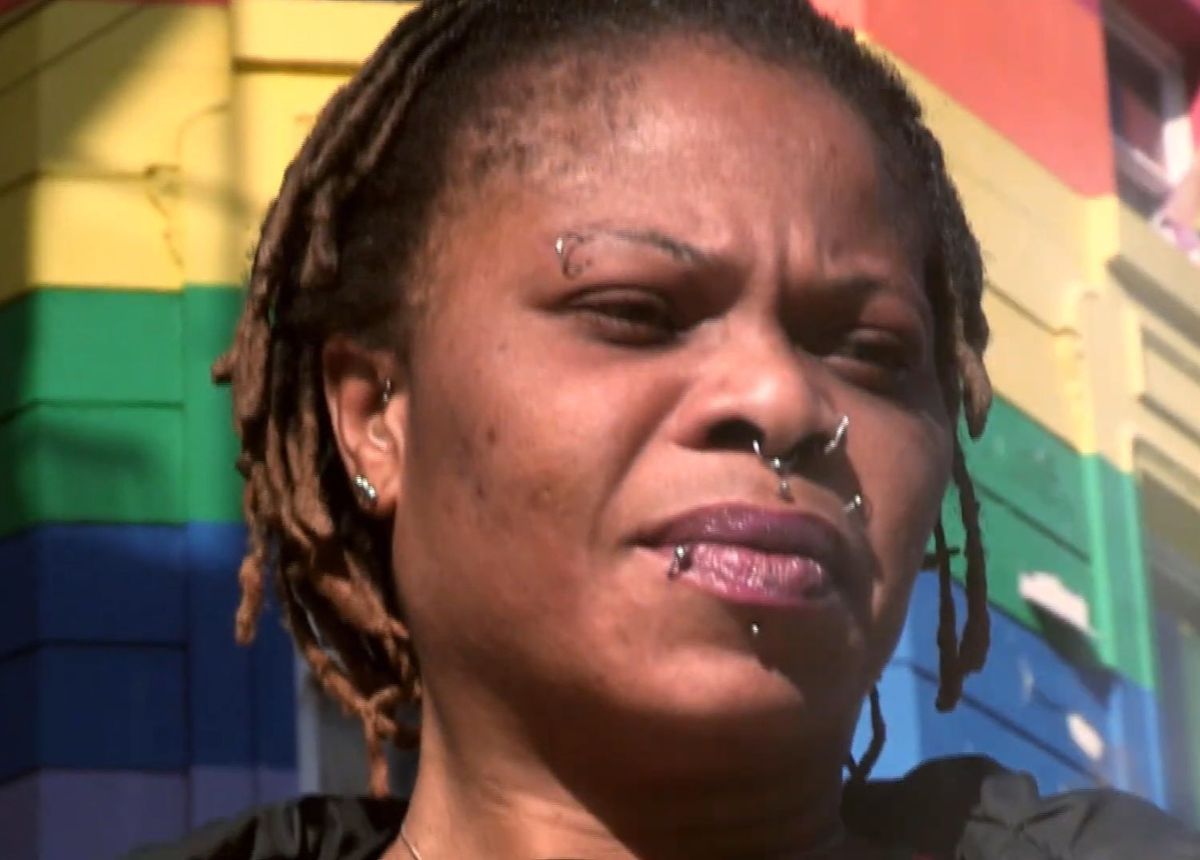
That film has enabled us to show LGBTQI+ audiences what detention is really like for those who are locked away. We have been honoured to screen it to the community in LGBTQI+ venues that are supporting the campaign, with events at the Ledward Centre in Brighton and London LGBTQ+ Community Centre.
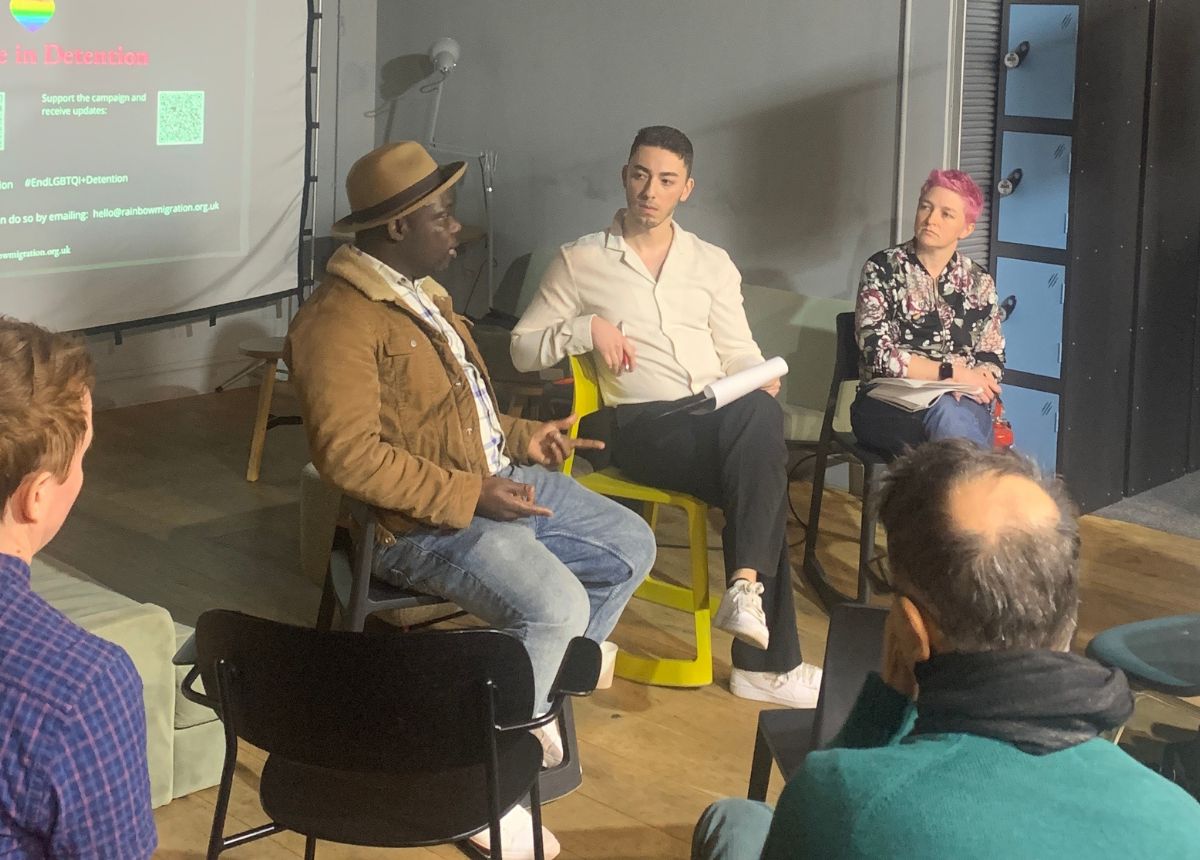
Other partners have joined in by taking the campaign to events – like Refugee Buddy Project campaigning at Hastings Pride and Trans Sober talking to the community at Brighton Trans Pride. And when it comes to influencing politicians, it is fantastic to have the backing of Stonewall, who included ending LGBTQI+ detention as one of their priorities for a new government in their Back On Track plan for LGBTQ+ equality in the UK.
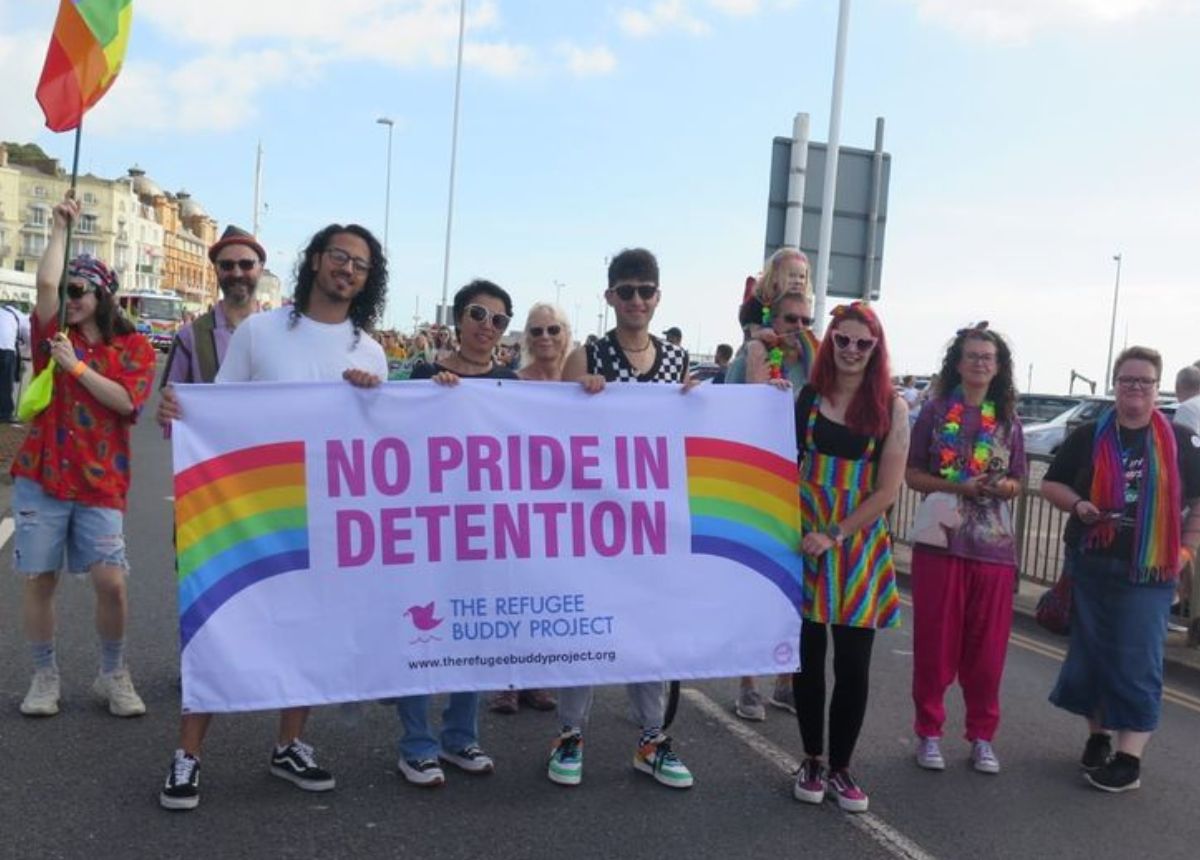
Spurred on by the injustices at Larne House Short Term Holding Facility near Belfast – where more than 5,000 people have been detained since it opened in 2011 – the campaign is also supported by 5 groups in Northern Ireland. Here NI, Rainbow Refugees NI, and End Deportations Belfast have been supporting tirelessly on social media to keep the issue in people’s minds.
If your group or organisation agrees that no LGBTQI+ person should be locked up indefinitely and subject to bullying and abuse, join us and become part of the movement to end LGBTQI+ detention. Check out the full list of organisations involved and sign you own group up today.
Together, we will win this!
Fine-art photography book 'Asylum' showcases portraits of LGBTQI+ refugees
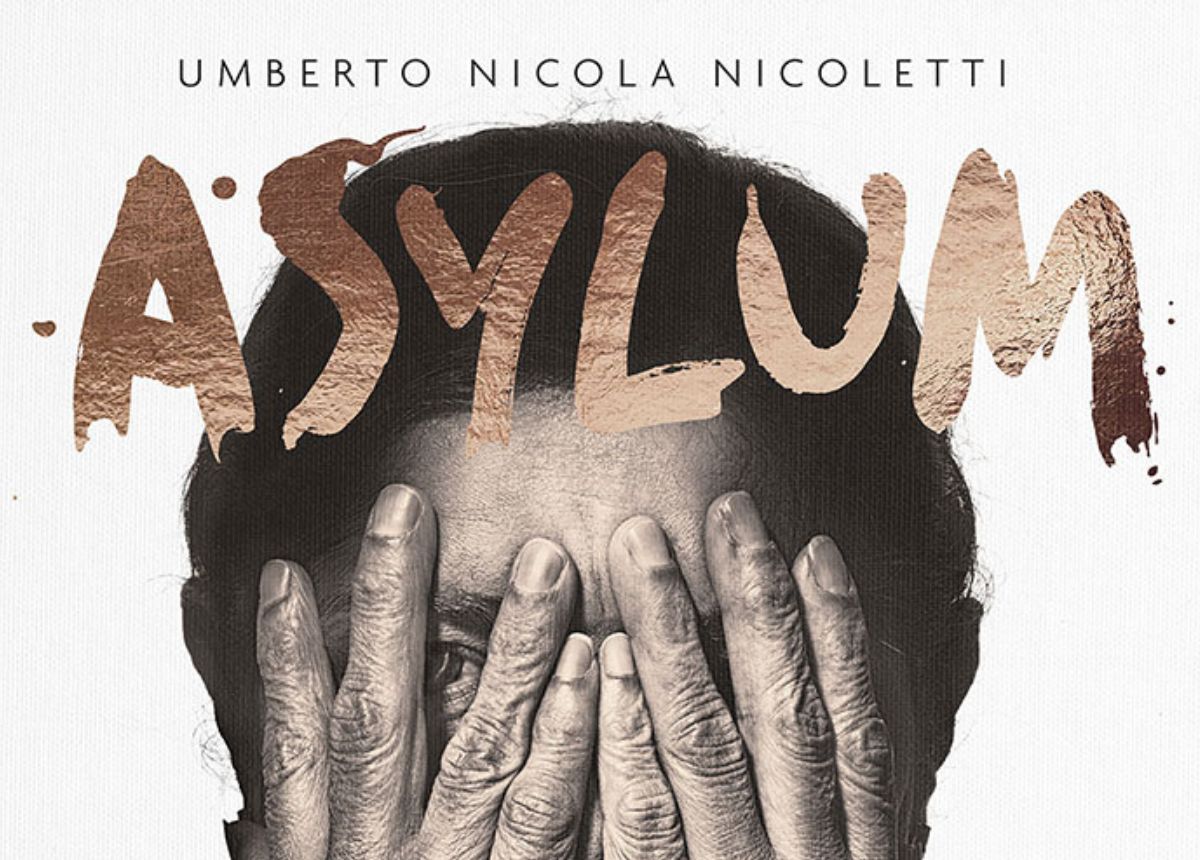
Umberto N. Nicoletti is a photographer from Italy; his book 'Asylum' features beautiful portraits of LGBTQI+ refugees from around the world.
What is ‘Asylum’ about, and what inspired you to make it?
I felt compelled to make a positive change in the world and embarked on a very special project, my first photography fine-art book, called ‘Asylum’. The book features portraits of LGBTQI+ refugees who are fleeing persecution in their home countries and describes the challenges they face as they seek safety and refuge elsewhere.
Thanks to a dear friend of mine, who volunteers for an organisation which supports LGBTQI+ refugees in Italy, I became aware of the issues facing people who are discriminated against because of their gender identity or sexual orientation, in many countries all over the world. I collaborated with this organsation to raise awareness among both the general public and the LGBTQI+ community.
I was devoted to “Asylum” for over six years. These images were captured by partnering up with five global organisations, including Rainbow Migration. These organisations help people in their asylum process and they also play a crucial role in the integration of LGBTQ+ refugees The other organisations I collaborated with are The 519 in Toronto, CIG Arcigay in Milan, The DC Center in Washington D.C., and RusaLGBT in New York. Each has been instrumental in bringing this body of work to life!
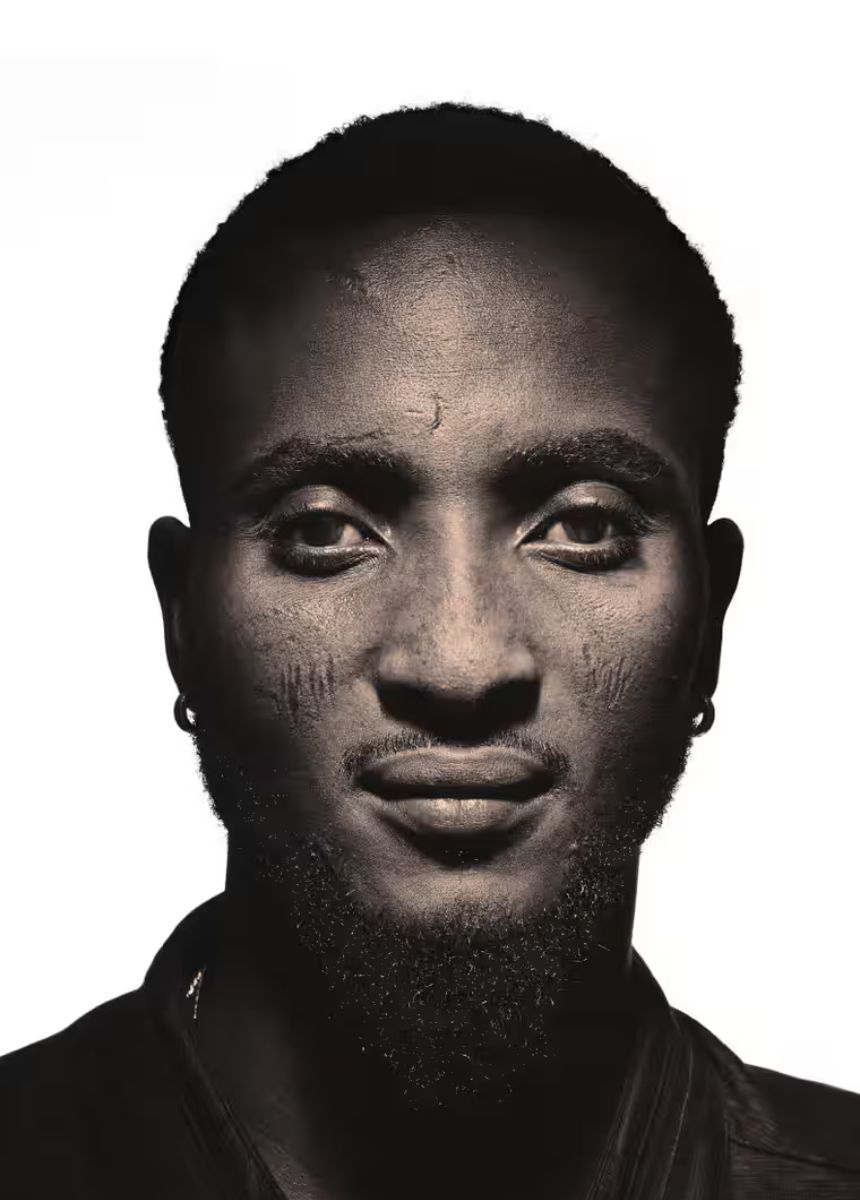
For people who haven’t seen the book yet, what will they find inside?
Inside are several portraits of LGBTQI+ refugees, all shot in just black and white. My photographic approach does not merely involve capturing images but rather portraying the individuality and complexity of each person. The lights and shadows are a visual metaphor. I don’t name them. The anonymity of the people in the photos not only respects their privacy but also symbolizes the struggles and pain that LGBTQI+ refugees face in their home countries, as they are forced to hide their true selves for fear of persecution and violence. This evokes a sense of empathy and frustration in the viewer, highlighting the urgent need for change and recognition of their humanity.
I use beautiful, glossy images, commonly associated with fashion and advertising, to shift the focus from the discrimination and hardships they face, to instead show their unique stories and inherent worth.
By portraying the refugees as celebrities, idols, and heroes, “Asylum” seeks to humanise LGBTQI+ refugees and restore their dignity. The stories contained within its pages are testaments to the remarkable qualities of resilience and perseverance that have propelled them forward in the face of adversity.
So “Asylum” is not merely a collection of beautiful pictures; it is a heartfelt and thought-provoking exploration of the human spirit and the journey toward a safer and more inclusive world for all.
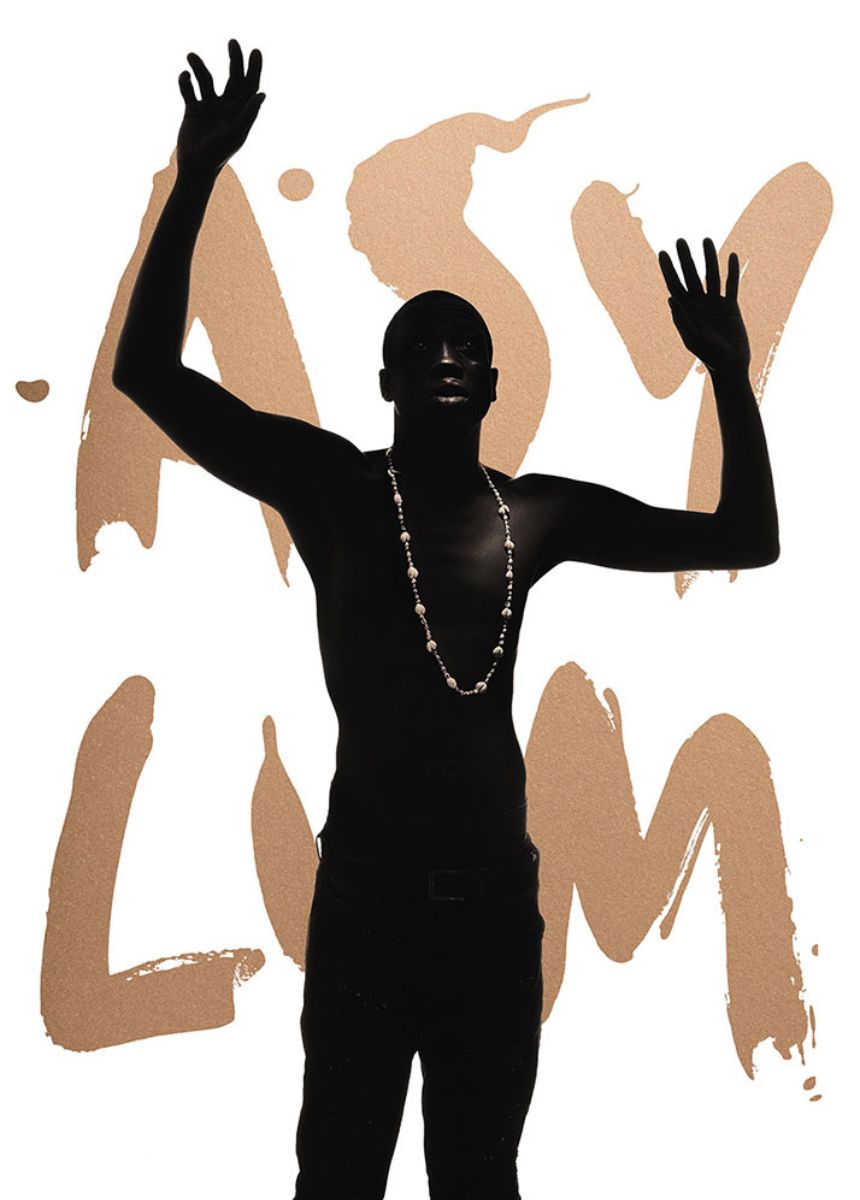
Did you encounter any challenges or issues while putting the project together, and if so, how did you overcome them?
The primary challenge I encountered was securing funding, due to people’s lack of awareness of the issue. I was also very concerned about safeguarding the people. I had to find a balanced compromise, enabling me to shed light on this vital matter while ensuring the well-being of those involved.
What did you learn about being LGBTQI+ and seeking asylum by doing this project?
I consider LGBTQI+ refugees to be real heroes. They show us the true state of human rights in the world. They suffer from terrible injustices just because of who they are and where they were born, which is something beyond their control and not based on their own worth. This is something we often overlook.
They are a reminder that no one should take their freedoms lightly and that it’s easy to fall back into unfair ways of treating people. Living in constant fear, worried about every little thing and every look from someone else, is no way to live. Not being able to trust people and always feeling threatened stops us from making deep connections with others, which I believe is the best part of being human.
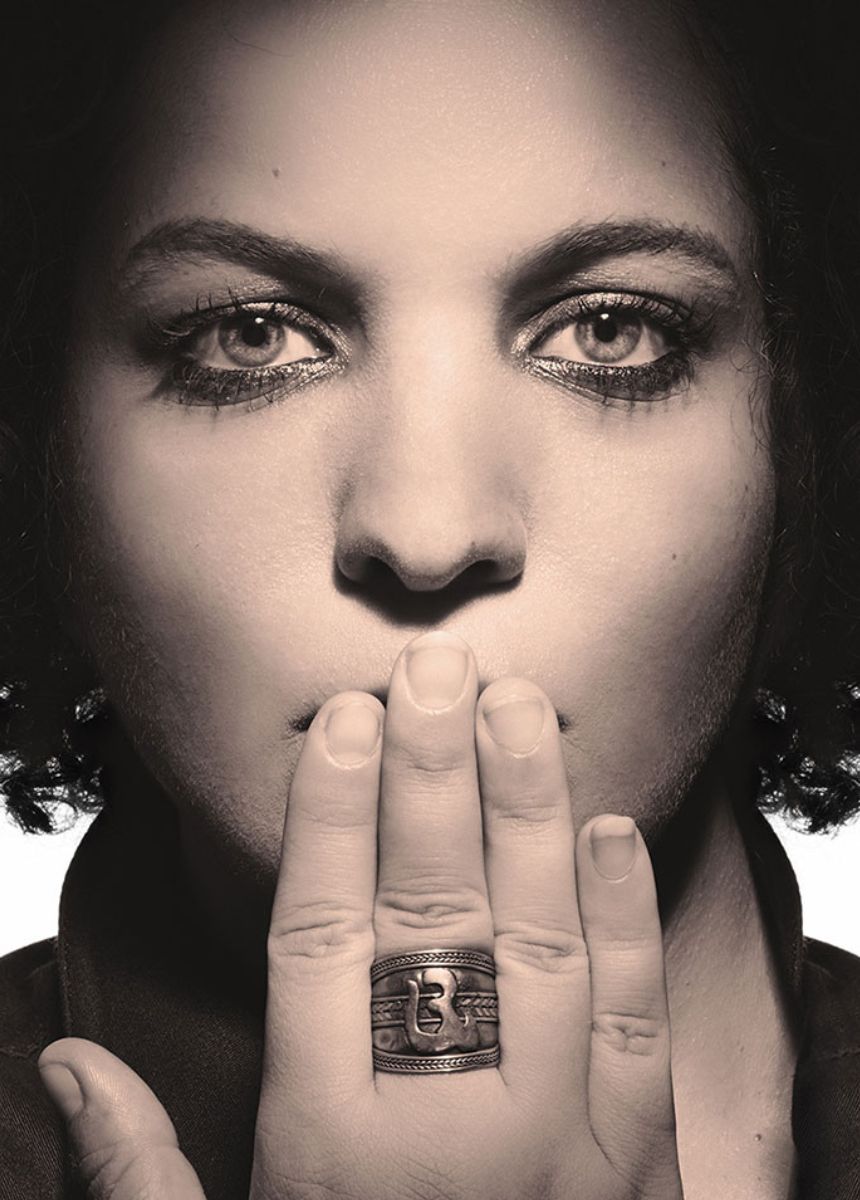
What is the goal of your project? What message do you want to pass on to the world through ‘Asylum’?
The project aims to bring attention to the persecution many LGBTQI+ people face in their countries of origin, due to their gender identity or sexual orientation. It serves as a platform for the voices and narratives of people who are seeking safety to have the freedom to be who they are.
The goal is to start a conversation about the important ideas of acceptance, inclusion, and being welcoming, especially to LGBTQI+ people in their new countries. It’s sad to see that some refugees face unfriendly treatment from their own communities, which should never happen.
‘Asylum’ is not only a photographic documentation, but rather an art project that places a profound emphasis on the restoration of their inherent dignity.
I also hope to help this cause financially by getting donations through the website asylum-theproject.com. Anyone can give money to the organisations that are part of this project.
So, I’m pushing for a world where we value and support everyone’s freedom, and where we appreciate the variety of people that makes our life together better. Let’s practice understanding, encourage kindness, and aim for togetherness as we deal with the complicated ways our lives are connected.
‘Asylum’ was published in May 2023 by Rizzoli New York. Find out more.
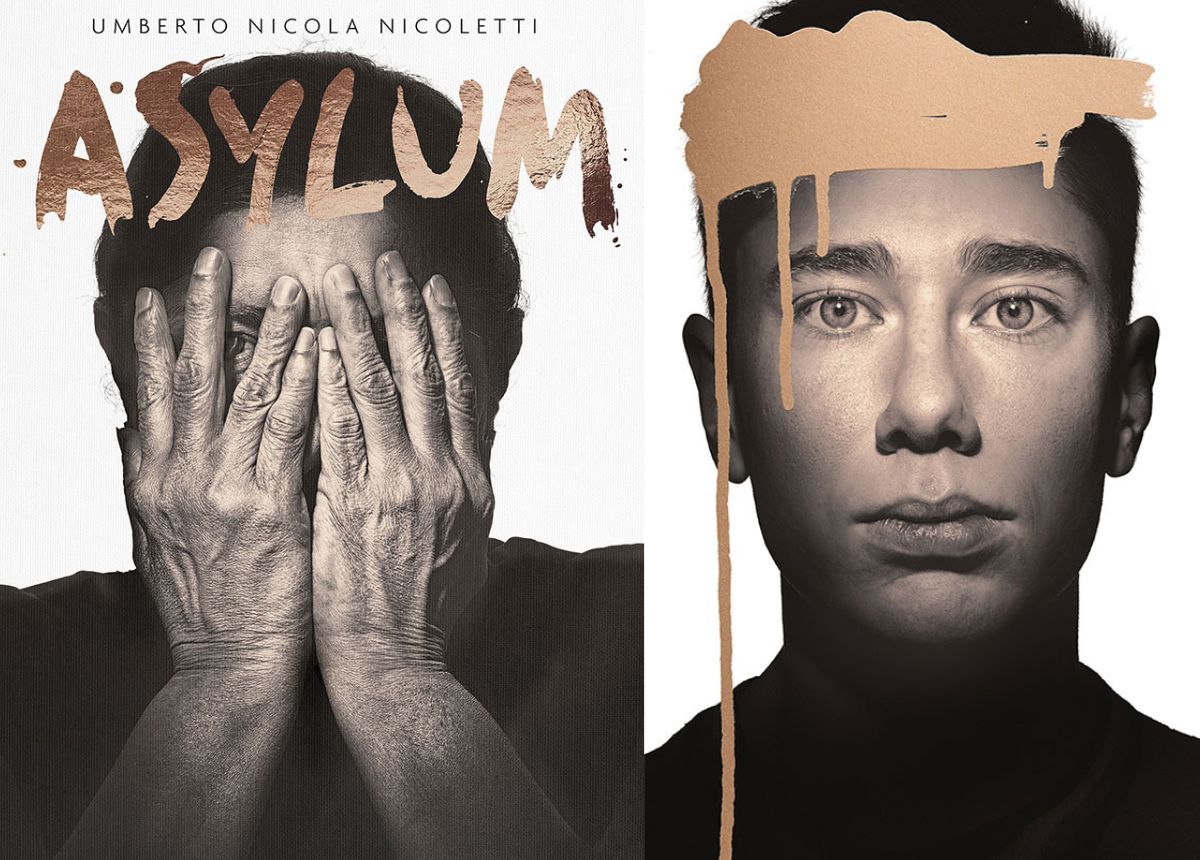
Are you LGBTQI+ with experience of the asylum system? You could help shape our strategy by becoming our trustee
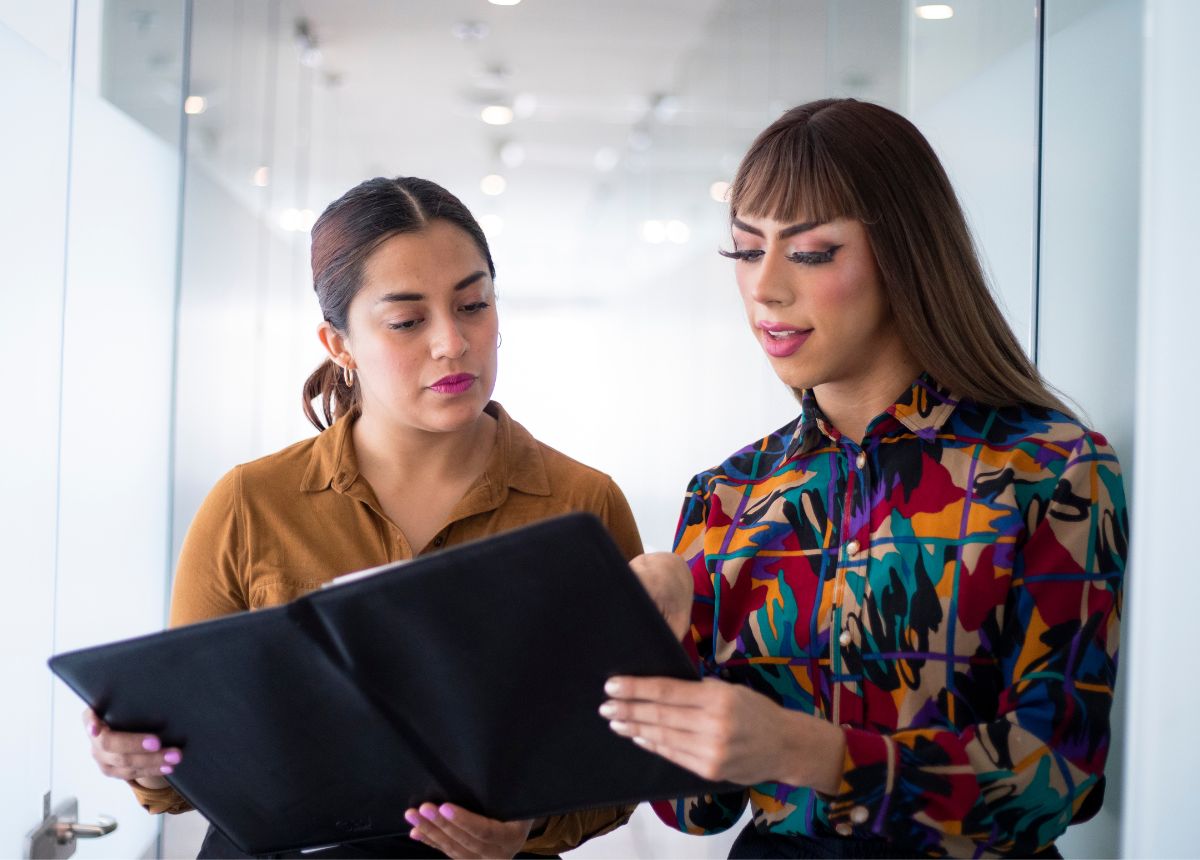
Could you be our next trustee? At Rainbow Migration we are currently on the lookout for LGBTQI+ people who have been through the asylum system to join our board.
Our current board consists of people with a wide range of backgrounds, skills and experiences, including lived experience of the asylum system, law, communications, fundraising, finance, safeguarding, research and anti-oppression.
We’re interested in hearing from people who can use their insight of going through the asylum system to inform our governance and strategy. We are also interested in any other skills and experience you have from your life or your work history.
We encourage applications from people from all walks of life, and would particularly like to hear from you if you are a person of colour, trans, non-binary, intersex, disabled or neurodivergent.
Still unsure whether this opportunity is for you or not? Here are some frequently asked questions that might help you make a decision.
What will I be doing?
Trustees are legally responsible for Rainbow Migration. Your duties will include:
- Setting strategy. Our trustees have set our strategy for 2023-25 and need to ensure it remains fit-for-purpose, guides our activities and is updated when needed
- Ensuring we abide by our constitution, follow the law, and act in line with our values and policies
- Making good use of our money and resources
- Considering and mitigating risks
- Reporting to the Charity Commission
These are some of the matters trustees have discussed in recent meetings:
- Our finances, including setting the annual budget, and checking income and expenditure is on track
- Human resources (HR), including staff salaries, pensions and parental leave
- Organisational policies including safeguarding, health and safety, and data protection
- How changes in law and government policy could affect our service users and our work.
What if I don’t have experience as a trustee? Can I still apply?
You absolutely can. We will support you to develop in the role. For example, we can ‘buddy you up’ with an existing trustee that you can meet regularly to prepare for board meetings. We also provide training and can pay for you to attend relevant courses.
Will I be able to meet with people seeking asylum to help them?
The role of trustees is to govern the charity and ensure we are meeting the purpose for which we exist. You won’t have much involvement in the day-to-day work of the charity, so contact with service users will be limited.
I don’t have a computer. Is that a problem?
We don’t want technology to be a barrier to becoming a trustee. It’s helpful if you have a smartphone, at least, so that you have regular access to emails and can connect to meetings on Zoom. We can provide training if you need to learn how to use Word or Excel, for example. Please apply and we can talk about how we can help make sure you can participate fully.
Can I become a trustee if I’m applying for asylum?
We can only accept applications from people with leave to remain in the UK or UK citizenship. We would be happy to consider an application from you to become a trustee when we next recruit if you have secured leave to remain by then.

